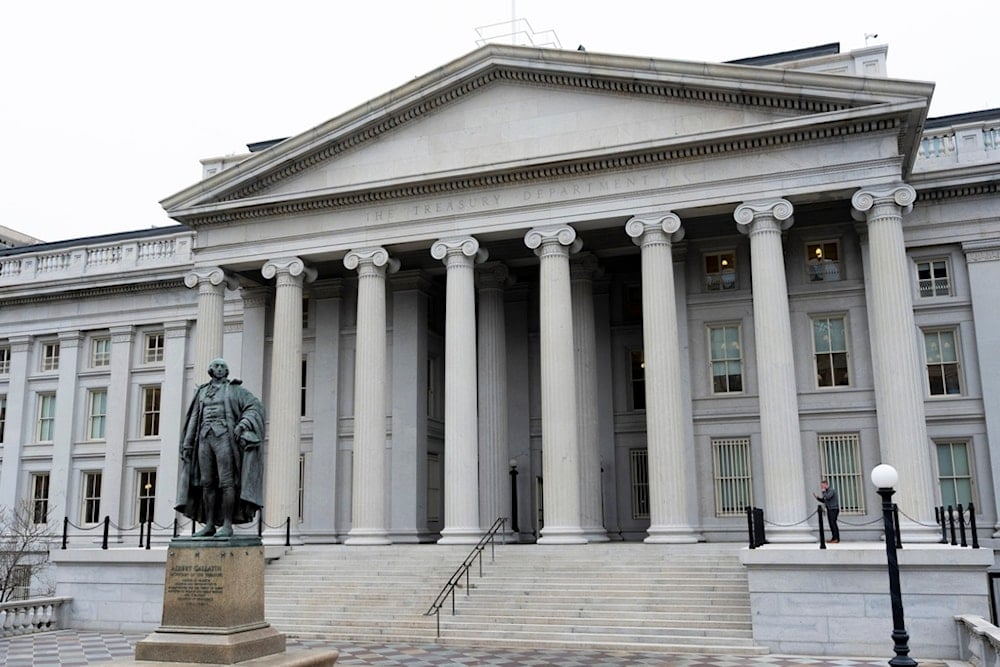Mexico rejects US claims linking its banks to opioid money laundering
Mexico rejects US accusations that three of its financial institutions were involved in opioid-related money laundering.
-

The Treasury Department building is seen, March 13, 2025, in Washington. (AP Photo/Alex Brandon, File)
Tensions between Mexico City and Washington have intensified following the US Treasury Department's sanctioning of three Mexican financial institutions, CIBanco S.A., Intercam Banco S.A., and Vector Casa de Bolsa S.A. de C.V., as major money laundering concerns allegedly tied to opioid trafficking networks.
While the US alleges that these firms helped facilitate financial operations connected to transnational drug cartels, Mexican authorities are firmly rejecting the accusations, citing a lack of credible evidence.
The designations fall under expanded enforcement powers granted by the Fentanyl Sanctions Act and the FEND Off Fentanyl Act, tools that have allowed the US Treasury's Financial Crimes Enforcement Network (FinCEN) to impose strict restrictions on American financial institutions transacting with the named entities.
US officials claim the banks were involved in laundering funds related to synthetic opioid precursors shipped from China and distributed by cartels like the Sinaloa, CJNG, and Beltrán-Leyva organizations.
Evidence absent
Yet the Mexican Finance Ministry pushed back sharply in a formal statement, saying, "It failed to provide evidence which could be examined by our Financial Intelligence Unit or National Banking and Securities Commission."
Officials clarified that the transactions referenced by the US involved duly registered Chinese companies, typical of Mexico's extensive trade ties with China, which now exceed $139 billion annually.
Following an internal investigation, Mexican regulators identified only administrative compliance violations, not criminal wrongdoing.
The institutions in question have already been fined for these infractions, the ministry noted, but insisted that no connections to organized crime were found.
"Any additional action will be taken if verifiable evidence of unlawful conduct is submitted," the ministry added.
Read more: Mexico president blames US for increased drug cartel violence
Bank pushback
Intercam Banco, one of the targeted institutions, issued a forceful denial, "We categorically deny any association between this institution and any illicit activity, particularly money laundering, and reiterate our firm commitment to transparency and legality."
It underscored its nearly 30-year history of compliance with AML and CTF regulations, and affirmed that the Mexican government itself "has no information regarding the alleged violations."
While FinCEN's action may have significant repercussions for the targeted firms, by effectively cutting them off from the US financial system, experts have warned that the move could also strain bilateral cooperation on security and anti-drug enforcement.
Mexican authorities are now calling for full transparency and evidence-sharing, suggesting that unless the US backs its claims with documentation, the sanctions risk damaging trust between the two closely tied economies.
The dispute also signals a broader tension over how the United States is increasingly using extraterritorial financial tools to combat the fentanyl crisis, potentially ensnaring foreign institutions in enforcement regimes without due process or bilateral consultation.

 3 Min Read
3 Min Read










